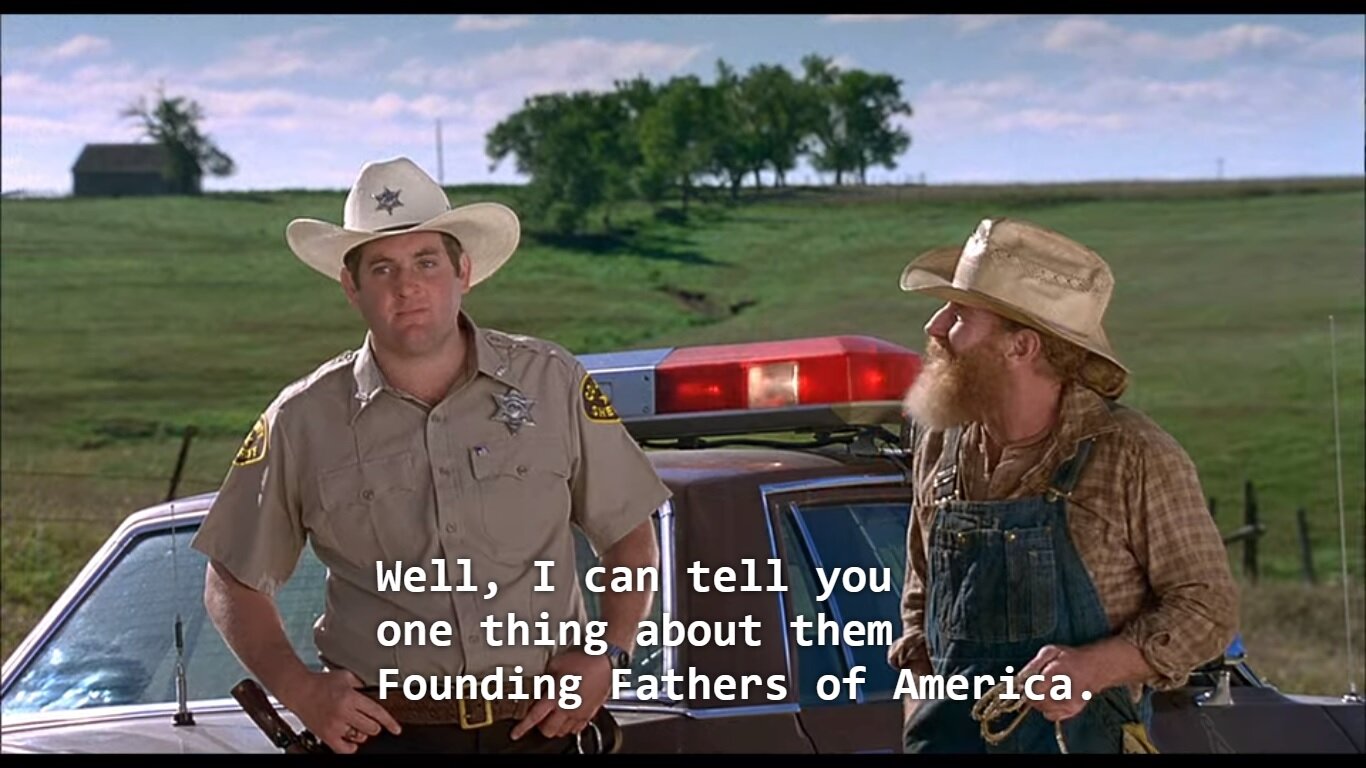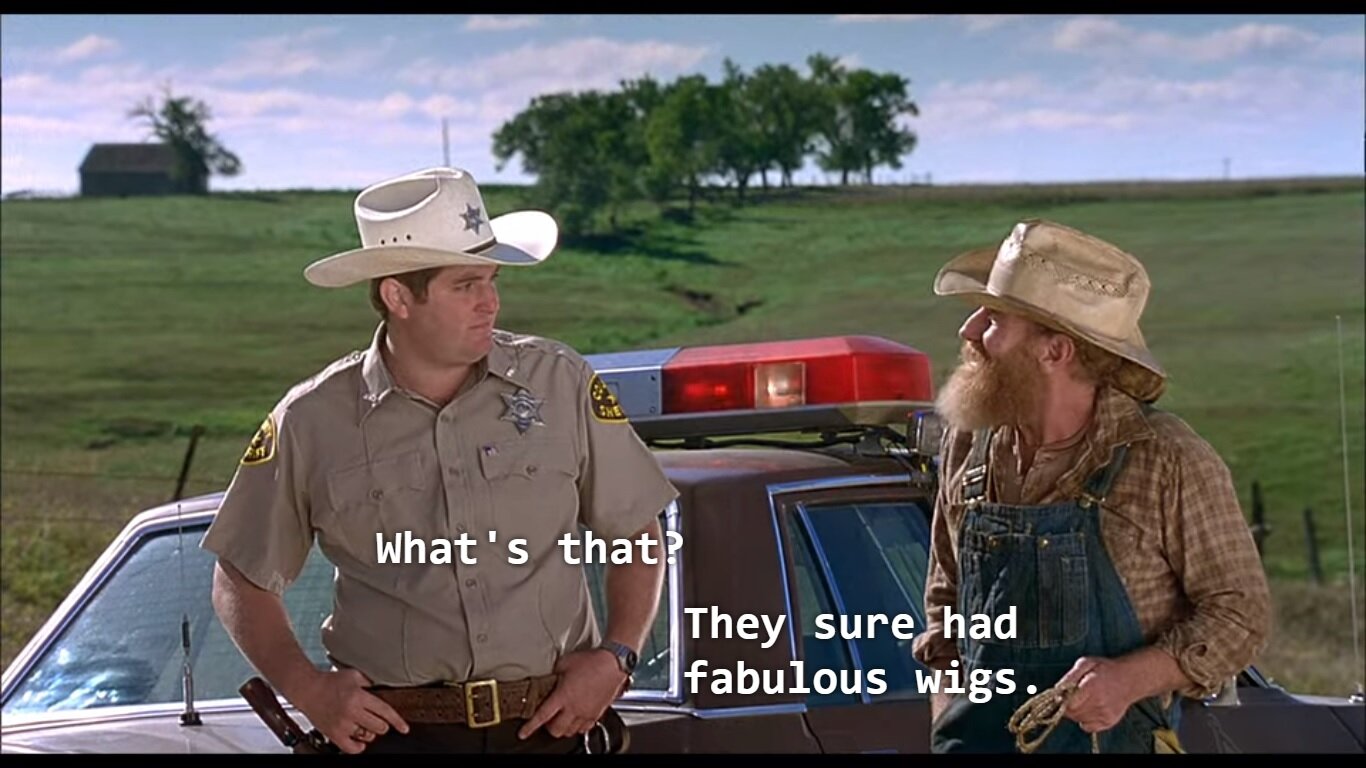Universal Pictures
By Andrea Thompson
Critics may not have been ready for “To Wong Foo, Thanks for Everything! Julie Newmar,” but a lot of other people sure as hell were. A comedy about three drag queens driving from New York to compete in a drag beauty pageant in L.A., the film received such mixed reviews that Rotten Tomatoes disgraced itself by giving it a rating of 39%. It clearly made an impression on audiences though, since it was the top grossing movie at the box office for two weeks.
The title refers to a signed photo by Julie Newmar that Vida (Patrick Swayze), the most maternal of the trio, steals as a kind of good luck charm on their journey. It seems to have done the trick, seeing as how Newmar makes a cameo as herself in the film.
It also seems to have worked its magic on the remainder of the film as well, which remains charming, even if the ending veers too far into wish fulfillment. “To Wong Foo” doesn’t just take the concerns of Vida, her friend Noxeema (Wesley Snipes), and Chi-Chi (John Leguizamo), the newcomer they take under their wing, seriously, it reslishes their passionate appreciation of glamorous femininity.
Nor were any of these ladies defined by their oppression, or what so many outside of their tight-knit community and surrogate family thought of them. Aside from a brief glimpse of Vida’s disapproving mother from afar, Noxeema, Vida, and Chi-Chi are wholly themselves, with no need of validation from said family who are typically the focus, even as they constantly rejected those they deemed outsiders, only to tearfully embrace their choices by the end.
Perhaps critics also expected the film to at least mention the AIDS crisis, which was the leading cause of death for adults aged 25 to 44 at the time, according to The Advocate. While suffering seems to be the industry’s go-to strategy to build compassion for the marginalized, “To Wong Foo” immerses us in the drag community from the beginning. It’s not only aware of the tough guy/heartthrob personas of Swayze and Snipes, it plays on them, both in the original trailers, and from the moment the film kicks off, with an objectified Patrick Swayze stepping out of the shower in all his swoonworthy, abtastic glory, only to objectify him in much different way as he begins to put on his feminine persona.
How this process is portrayed sets the tone. Just four years prior in “The Silence of the Lambs,” a man feminizing himself was depicted as the ultimate horror, but as the central characters delightedly, carefully adorn themselves with makeup, wigs, stockings and all around style, director Beeban Kidron likewise relishes their joy and the care that goes into it. It’s indicative of the movie’s respect, not just for femininity, but women in general.
Critics might have accused “To Wong Foo” of timidity, political correctness, and a lack of originality in terms of plot, and they weren’t completely wrong. There’s a certain suspension of disbelief required, not just for the over-the-top, utopian ending, but that almost none of the residents of Snydersville, the small town Noxeema, Vida, and Chi-Chi become stranded in, recognize them as men in drag.
No, “To Wong Foo” couldn’t be accused of diving too deep. But it does mostly accomplish what it set out to do, which is be funny as hell. Snipes, Swayze, and Leguizamo are all in top form, and it’s not only the jokes that land perfectly, it’s the banter, which ranges from tough love to outright animosity, and finally, to camaraderie.
It’s also not as if the movie is unaware of the very real danger these three face on a daily basis. They only become stranded in Snydersville in the first place because a sheriff attempts to assault Vida one night after he pulls them over. She fights him off, but believes she kills him in the process rather than merely knocking him out, causing all of them to flee in terror. That terror is also present from the moment their encounter with him begins, when Sheriff Dollard pulls them over while they’re driving in a remote area at night. As he comes up to them with his hand firmly on his gun we know is going to be unpleasant at the very least. The only question is whether it will also be horrific.
Thank goodness not all small towns are completely hellish, because while Snydersville proves to have the kinds of characters who benefit from the trio’s presence, it has its share of dangers as well. At one point, Chi-Chi gets harassed from a group of male rednecks in an encounter that threatened to become a gang rape, only to be saved by a nice local boy who actually becomes her love interest.
One of them also gets his comeuppance from Noxeema in a scene that’s become both iconic and queer canon, and deeply reflective in how the women of Snydersville become stronger and more confident thanks to the three, who literally brighten up a place which initially appears as drab and almost colorless, only to become awash in a sea of red as Noxeema, Vida, and Chi-Chi decide to participate in the town Strawberry Social. By the time the despicable Sheriff Dollard tracks them down, the stage is literally set for a fabulous Western standoff that involves literally running the toxic men in their midst out of town.
Interestingly though, one of the most difficult tasks wasn’t finding the movie’s leads, it was finding a director. Swayze, Snipes, and Leguizamo eagerly signed on, but practically every male director passed, with Beeban Kidron getting the gig, it seems, more out of desperation than any appreciation for her very considerable skills.
The ending is also more bittersweet than intended, what with Dollard’s rant about how the Constitution doesn’t apply to such “deviants,” amidst the resurgence of an alt right determined to roll back every hard fought gain progressives have made, including recent court rulings. But at least he gets the clap back he deserves, and “To Wong Foo” also remains an unapologetic celebration of its leads and queer culture, (with cameos from icons that include Ru Paul) paving the way for much more to come.




